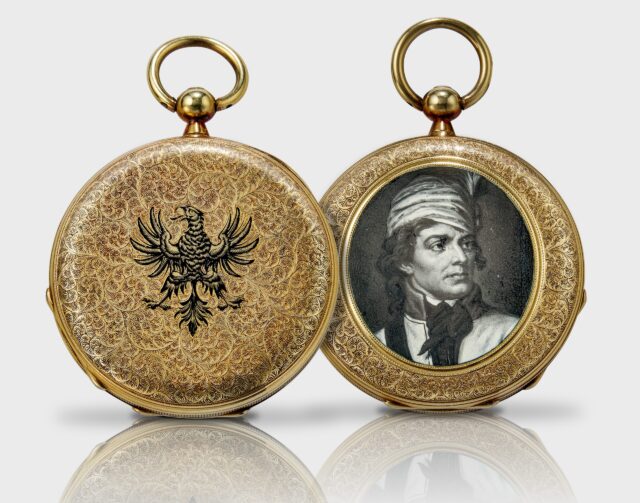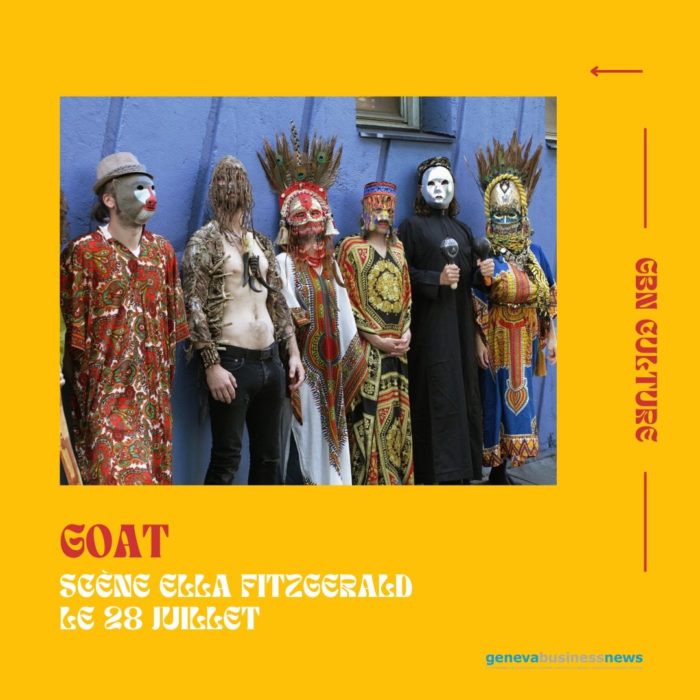

On July 28, Goat will be performing at the Ella Fitzgerald stage.
Cliquez ici pour lire la version française
There is an ancient voodoo tradition in the small remote village of Korpilombolo in northern Sweden.
For generations, the village priests passed on to the local population incantations, rituals and songs brought back worldwide. To preserve this mystical tradition, a collective, of which Goat is only the current incarnation, was formed 200 or 300 years ago.
This apocryphal legend, as told by Goatman, Goat's spokesman (rather than the leader), seems like a mask that hides the will to remain anonymous, a distrust of the entertainment industry and perhaps a particular animosity against the press.
However, the tribal masks musicians wear are not simply meant to hide their faces, but they result from a decision to erase individual identities in favour of a strong collective identity. Their ponchos, kaftans, djellabas, feathered headdresses and other traditional garb help reaffirm this collective identity and lend to Goat's concerts the sense of a ritual celebration.
Described as psychedelic rock, Goat doesn't easily fit into a single box. Of course, their penchant for experimentation and the use of all kinds of instruments are in keeping with the psychedelic ethos. However, Goat concocts its potion with disparate ingredients: a few pinches of afrobeat, some funk, a touch of stoner rock and a broad spectrum of world music. The wah-wah guitars weave ingenious riffs against a backdrop of tribal percussion and fuzz bass, while the shamanic vocals, perfectly in unison, invoke the spirits of different cultures.
By the same author:
Plácido Domingo au Victoria Hall : 13 juin
Hermeto Pascoal : Scène Ella Fitzgerald, le 5 juillet
Image: Willonz, CC BY-SA 4.0, via Wikimedia Commons & Emmanuel Doffou